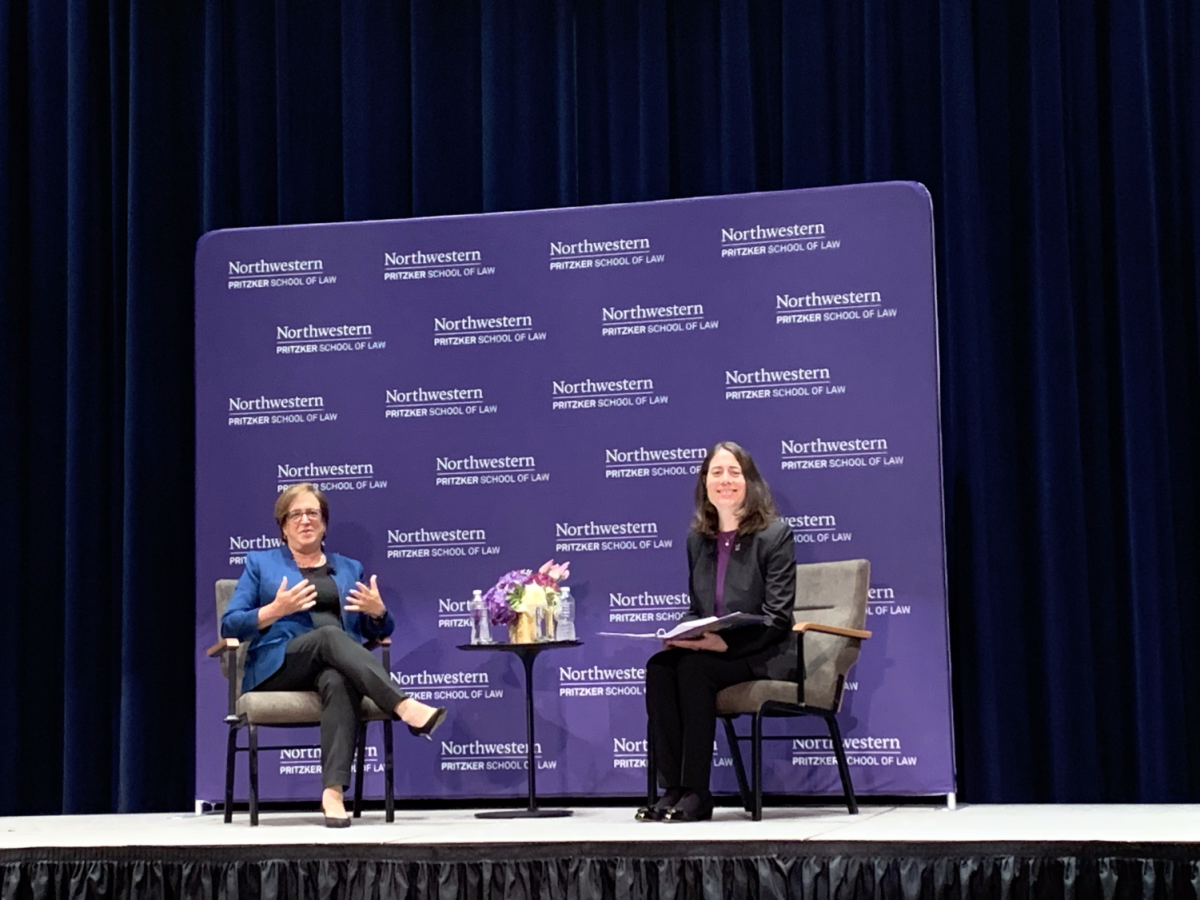President Donald Trump’s second administration has instituted a series of federal policy changes targeted at universities and academic research, reflecting a markedly different approach to higher education compared to previous administrations.
As part of The Daily’s Spring 2025 Campus Poll, we surveyed undergraduate students about how those shifts are affecting their lives. You can find the complete poll results here.
Forty-three percent of students said that the federal government’s $790 million funding freeze for Northwestern had affected their educational experience, though more students said it had done so “somewhat” (35.8%) rather than “seriously” (7.3%). Some students said they weren’t sure to what extent the change had affected their education (22.2%), while 34.2% said there had been no effect.
Over half (54.9%) of students said that the government’s position toward higher education had affected their future career plans. Included in that percentage are the 21.9% of students who said it had “significantly” affected their career plans.
The changes affected career plans across the student body. Second-, third- and fourth-years were about equally likely to say their career plans had been significantly affected at around 25% each; 13.4% of first-years did.
Students studying life sciences and physical sciences were the most likely to say that their career plans had been “significantly” or “somewhat” affected at 72.9% — with 27.8% saying their plans had been significantly affected. Similarly, 28.9% of humanities students said that their plans had been “significantly” affected.
At least 40% of students in every area of study said their career plans had been at least somewhat affected.
There was a slight partisan skew in how students responded to the aforementioned questions. Approximately nine percent more students who identified as liberal said their career plans had been affected than moderate and conservative students combined, at 44.6% versus 35.5%. The source of the difference was not immediately evident from the correlational data.
Columbia University agreed to a set of federal demands in March in order to negotiate the restoration of its funding. It appointed a senior vice provost to oversee the Middle Eastern studies department, revised protest rules and reviewed admission policies for potential bias. Harvard University later rejected a similar deal.
The Daily asked students whether NU should accept a similar deal, if one were to be offered. Overall, 49.2% of respondents said NU should not accept such a deal to attempt to restore its funding, while 6.9% said NU should. Another 36.3% said it depends on the terms offered.
A Department of Health and Human Services spokesperson recently cited federal antisemitism investigations for the NU funding freeze. Student responses in the poll differed based on their perceptions of campus antisemitism; almost 40% of respondents who said antisemitism is a somewhat or very serious problem said NU should not accept a deal, compared to 56.2% of respondents who indicated that antisemitism was not much of a problem or not a problem.
Aside from the funding cuts, the Trump administration has also made multiple moves to impede some international students from studying in the United States. In a few high profile cases, the administration has initiated deportation proceedings against students and recent graduates who had been involved in campus activism. The administration also attempted to delete records for thousands of international students in federal databases, but later restored many of them.
Most international students at NU say these changes have affected their educational experience, with 40.8% saying it had done so “significantly” and an additional 39.0% “somewhat.”
International students say the federal government’s visa and deportation policies have affected many of their decisions, including reconsidering plans to pursue a career in the U.S. after graduation (56.0%), refraining from making statements on social media or elsewhere (55.8%) and remaining in the U.S. instead of other travel plans (31.7%).
Email: [email protected]
X: @laurenhykee
Email: [email protected]
Related Stories:
— Poll: What the data says about the campus speech environment
— Poll: AI use frequency jumps from Fall Quarter, ChatGPT reigns supreme






